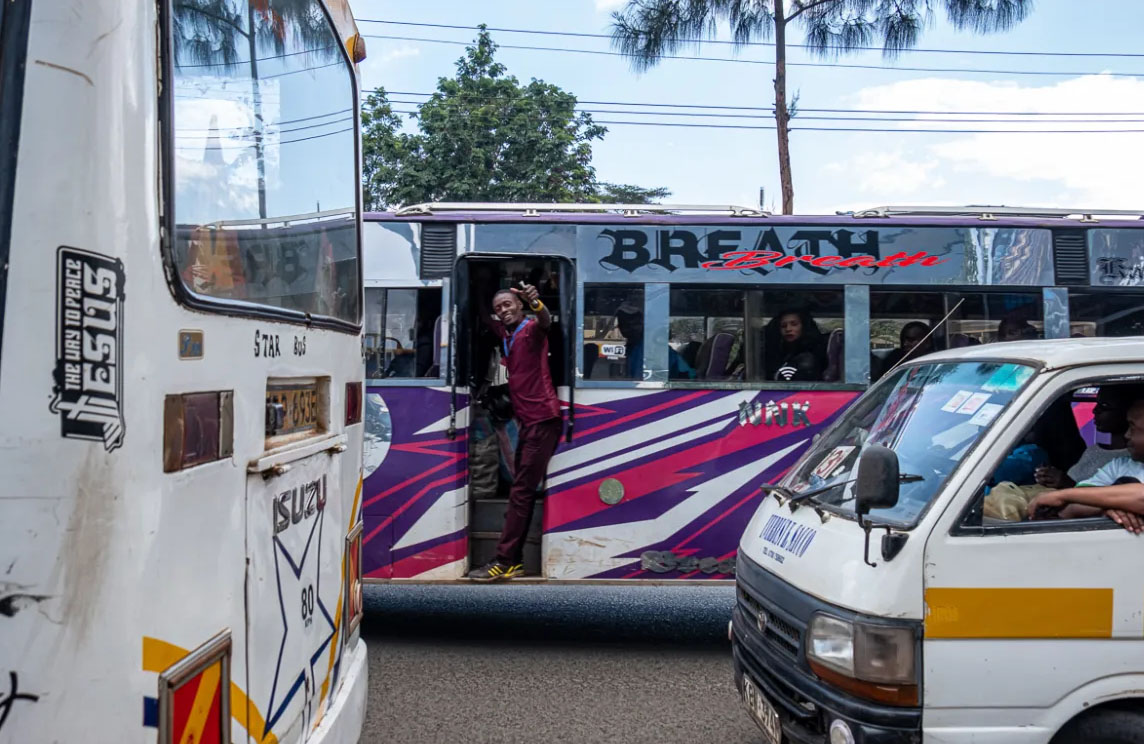
Photo Credit: Getty Images
The High Court of Kenya has ordered the National Transport and Safety Authority and the Traffic Police to release all impounded matatus and return their confiscated registration plates. Justice Bahati Mwamuye delivered a ruling that has evoked much attention, an indication of increasing tension between regulatory enforcement and the rights of public service vehicle operators.
It kicked off on January 21, 2025, with NTSA and the traffic police rolling out crackdowns against matatus in Nairobi and its environs for not adhering to set specifications on graffiti and artworks, among overly bright fog lights and tinted windows on the driver’s side. These measures saw many vehicles operating on main routes such as Embakai, Kiambu Road, Ongata Rongai, and Thika Road impounded. Several had their registration plates removed, rendering them out of service and causing their owners huge losses.
Represented by lawyers Danstan Omari and Shadrack Wambui, the operators, under the Nganya Association, petitioned the move by NTSA. The crackdown was excessive, uncalled for, and meant to create immense economic hardships. They said their vehicles were compliant with NTSA regulations and had satisfied all the essential qualifications regarding inspections.
Justice Mwamuye, in its consideration of the petition, issued a conservatory order to NTSA and Traffic Police to return the seized registration plates and release the impounded vehicles. The judge explained that the removal of number plates was unconstitutional, noting that serious issues had been raised by operators that warranted immediate relief.
The ruling has received mixed reactions. Matatu operators have welcomed the decision, saying that the impoundments had ruined their businesses and put livelihoods at stake. One operator said, “We have been forced to park our vehicles rather than risk impoundment and prolonged stays at police stations. Even brand-new vehicles have been unfairly flagged under punitive measures.”
On the other hand, NTSA insists that their enforcement activities were to ensure safety on the roads and adherence to transport laws. They have yet to issue an official statement following the court’s ruling.
In Kenya, matatus are more than just a mode of transport; they’re a cultural phenomenon. These are flashy designs, blaring music, and crazy themes. They add color to the city and provide cheap transport. Their crackdowns have raised debates on the balance between regulation and the freedom of culture.
The matter Is scheduled for mention on February 25, when further deliberations will take place. As the case goes on, matatu operators hope it might finally open a way to fruitful engagements with the authorities on how to address compliance issues sans a loss of cultural identity and economic viability.
















